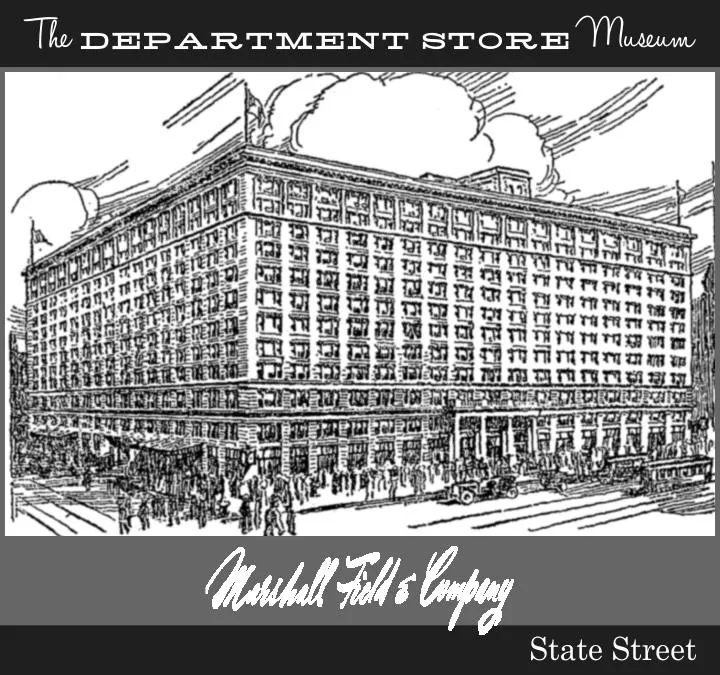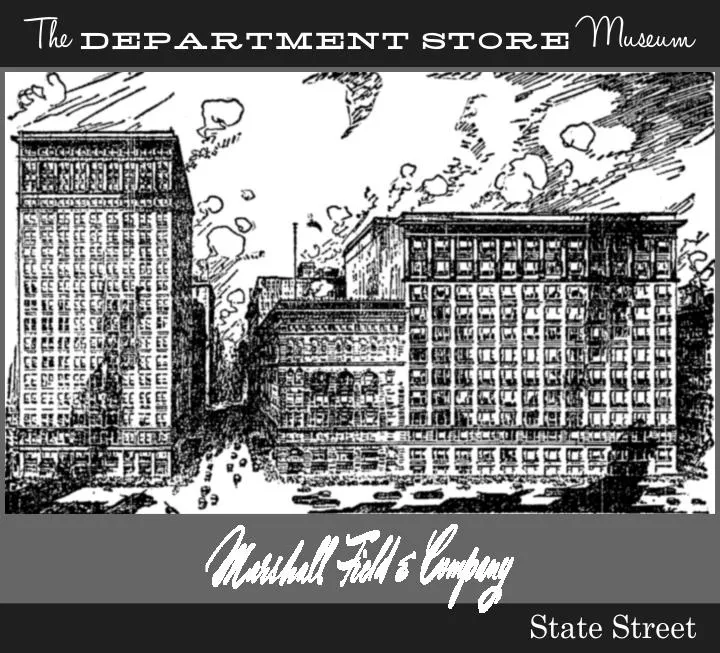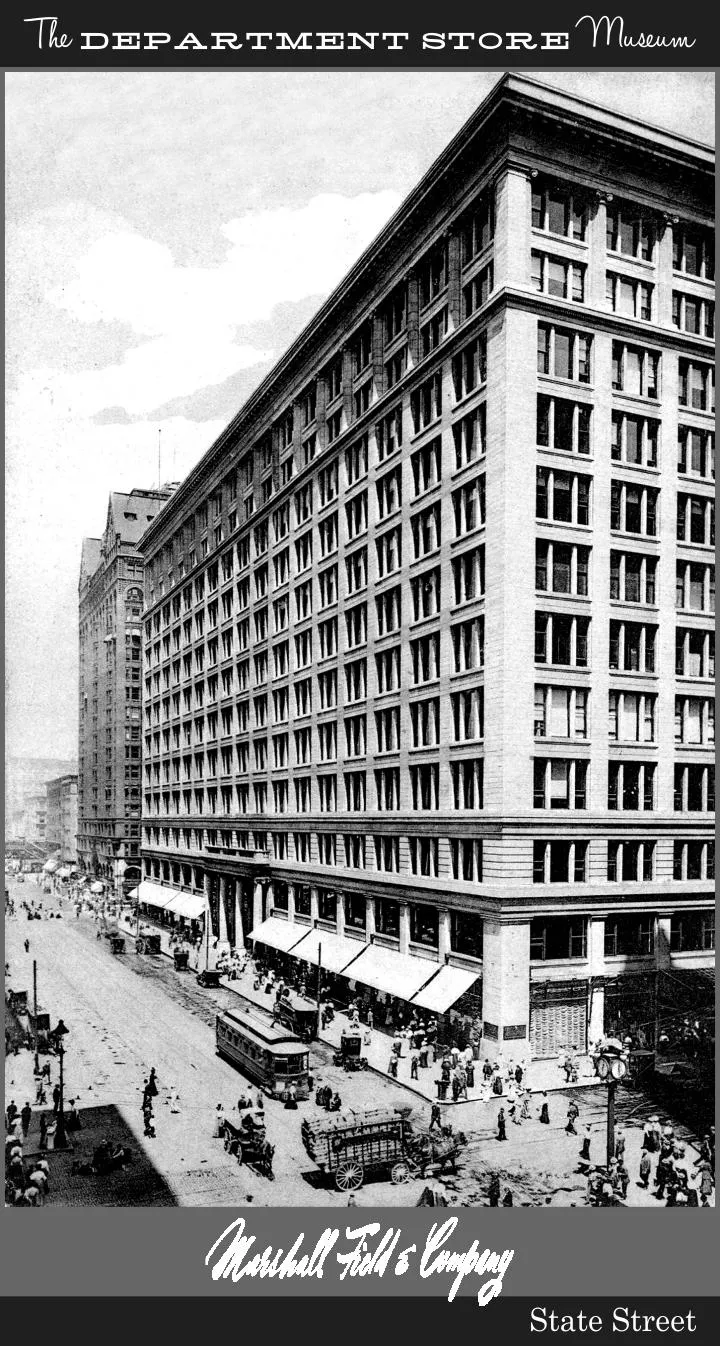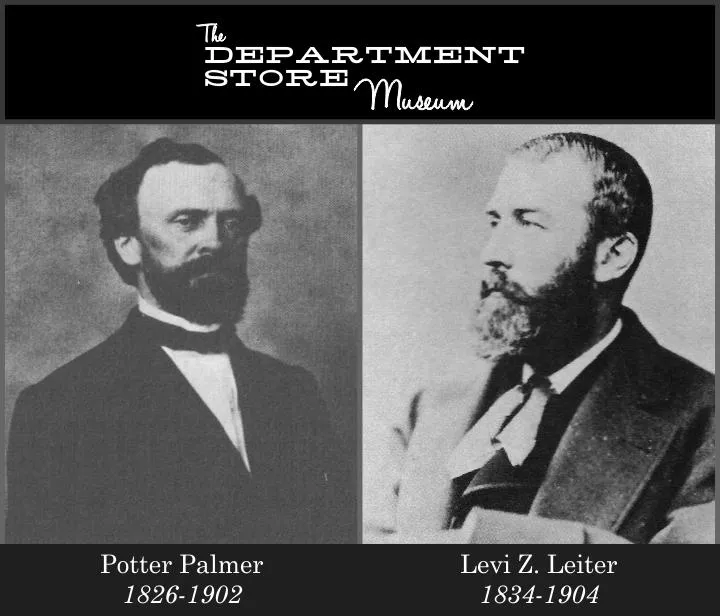
Founded 1852
111 South State Street
Chicago, Illinois
STate 1-1000
Marshall Field & Company
There's Nothing Like It Back Home
Marshall Field & Company was the Grande Dame of Grande Dame American department Stores. Macy’s may have had the larger building, and Neiman Marcus had more exclusivity, but Field’s was the standard-bearer for the industry on account of its reputation for quality, its status as a civic institution, and because of its beautiful, iconic store building in Chicago. A slogan used by the store in national advertising was “There’s nothing like it back home,” and that was largely true. There were fine stores across the country, but Marshall Field & Company embodied all that was the best about the industry, and threw in its own cachet for good measure.
The store was described in a long-forgotten article as being “like a wonderful old Aunt who always treats you like you’re special to her” and “a place where you’d find the most expensive couture fashion but also a replacement for that rubber ring at the bottom of your blender.” It was aristocratic . . . it always (until the late 1970’s, when the store’s status began a slow decline) referred to itself as Marshall Field & Company. It officially never used the word ‘department’, referring to the store’s ‘sections’ instead. Likewise, it felt that pricing sale or clearance merchandise at values like $21.99 or $15.97 was below its stature. Instead, sale prices were marked down to $21.90 or $15.90. The store also did not refer to “regular prices” in sale ads, so as to say that regularly priced merchandise was still of good value to customers. In fact, the store didn’t have “sales,” but referred to a “special selling” in ads. These small details made Field’s just a little different from everyone else, and along with a million others, made the store seem just a cut above.



In fact, it was the personality of Marshall Field himself as founder and leader of this institution that helped make it a one-of-a-kind in the retail world, even decades after his passing. Just as Field was known as a thoughtful, deliberate caretaker of the store's reputation, it was his memory, and insistence that the store have a certain "tone" that guided most of his successors to keep its reputation as an aristocrat, albeit a loving and welcoming one, intact. When Field noticed a clerk arguing with a female customer, he quelled the discussion immediately by directing the employee to "give the lady what she wants," and that slogan became a part of the store's operating philosophy, as did the store's official creed, penned by Marshall Field himself:
To do the right thing,
at the right time,
in the right way;
to do some things better than they were done before;
to eliminate errors;
to know both sides
of the question;
to be courteous;;
to be an example;
to love our work;
to anticipate requirements;
to develop resources;
to recognize no impediments;
to master circumstances;
to act from reason
rather than rule;
to be satisfied with nothing
short of perfection.
- The Marshall Field & Company Idea

History
The history of Marshall Field & Company dates, according to company tradition, not back to the time its namesake arrived in Chicago, but 4 years earlier, in 1852, when Potter Palmer (1826-1902), a native of Rensselaerville New York and descendant of early Quaker colonials in Massachusetts, came to Chicago and opened a fine new dry-goods store on Lake Street. Palmer’s store was not just large, and perfectly oriented to cater to its female clientele, but Palmer himself instituted policies he had learned of while out East – namely, that anyone not satisfied with their purchases could return them for an exchange or refund, and customers were allowed to take goods “on approval” and pay for them only when they were certain that they were satisfactory. This made Palmer’s enterprise the largest dry-goods house in the rapidly-growing Midwest, and from the time of its inception, it moved to three different locations on Chicago’s Lake Street, ending up at 112-116 Lake Street by 1858.


However, in 1850, a young man, born (18 August 1835) and bred on his parents’ farm in Conway, Massachusetts, left his home and made his way west to work in the dry-goods business. The young man settled for 2 years in Pittsfield, Massachusetts, where he worked at the store of Deacon Henry Davis, and built up a reputation as a considerate, knowledgeable and attentive salesman. Though he excelled at the store, and customers were used to asking exclusively “to be served by Mr. Field,” he left (in spite of his employer’s offer of a partnership) for Chicago to pursue bigger things in 1856.
He took a job at the Windy City’s Cooley, Wadsworth & Co., where he engaged in traveling sales for the company’s wholesale division. Eventually, Field became a partner in the firm, and when Cooley left the business, Levi Z. Leiter came on as the chief accountant of the newly formed Field, Farwell & Company. Yet Field & Farwell were not the most compatible of colleagues, and the post-Civil War recession caused problems for the partners.